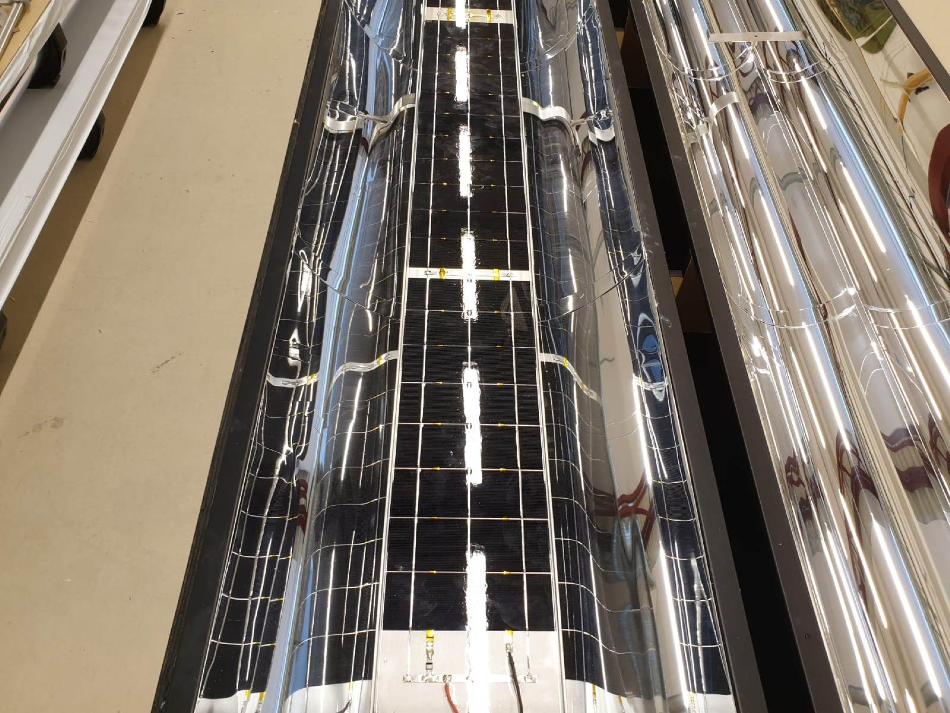Jul 17 2020
Integrated solutions based on renewable energy and customized to the requirements and demands of users and installers are being developed by the RES4BUILD project funded by the European Union (EU).
 Novel reflector geometry of the RES4BUILD concentrated photovoltaic thermal system. Image Credit: © MG Sustainable Engineering AB.
Novel reflector geometry of the RES4BUILD concentrated photovoltaic thermal system. Image Credit: © MG Sustainable Engineering AB.
The aim of the project is to increase the utilization of renewable energy solutions for decarbonizing the energy consumption in buildings, cooling and heating, and helping the EU to achieve its energy and climate goals.
The consortium has been striving to enhance the performance and decrease the cost of the most novel components of the RES4BUILD solutions—by combining magnetocaloric and multi-source heat pumps and photovoltaic thermal (PVT) collectors, maximizing their performance via advanced control and building energy management systems.
The solutions developed will be evaluated in several regions, offering a way to the market and guaranteeing extensive adoption.
So far, the progress has been great, with work on the essential components well underway. MG Sustainable Engineering AB and the University of Gävle, partners of RES4BUILD both from Sweden, are building the novel concentrated PVT collector with the help of the latest reflector geometry. The prototype collectors, which offer both electricity and heat from the same region, will be tested this summer both in Greece and Sweden to gather data from two distinct climatic zones.
The design and configuration of the multi-source vapor injection heat pump have been finalized by making use of a low-GWP refrigerant (an HFO: R1234ze(E)). It is provided with the most ideal heat from the ground, from the outside air, or from the PVT collectors.
The control unit has been designed such that it enables communication with the RES4BUILD building energy management system. Project partner Psyctotherm has created a prototype of this heat pump and installed it at NCSR Demokritos for laboratory tests and characterization.
Already, the preliminary tests displayed a coefficient of performance (COP) of over 5. The heat pump will be delivered to DTI in Denmark this August as a useful part of the combined pilot system, which will be tested further in the project.
Together with the technical work, BAPE and JIN are collaborating with end-users and other stakeholders on six case studies in Poland and in the Netherlands with the aim to develop the finest approach toward renovations of energy systems in a more combined and systematic way, which will lead to more efficient operation and maximized interaction with the grid, and thus reduction in energy bill for European consumers.
The co-design method will promote social inclusion and eventually contribute to a speedy energy transition, in accordance with European Green Deal objectives.